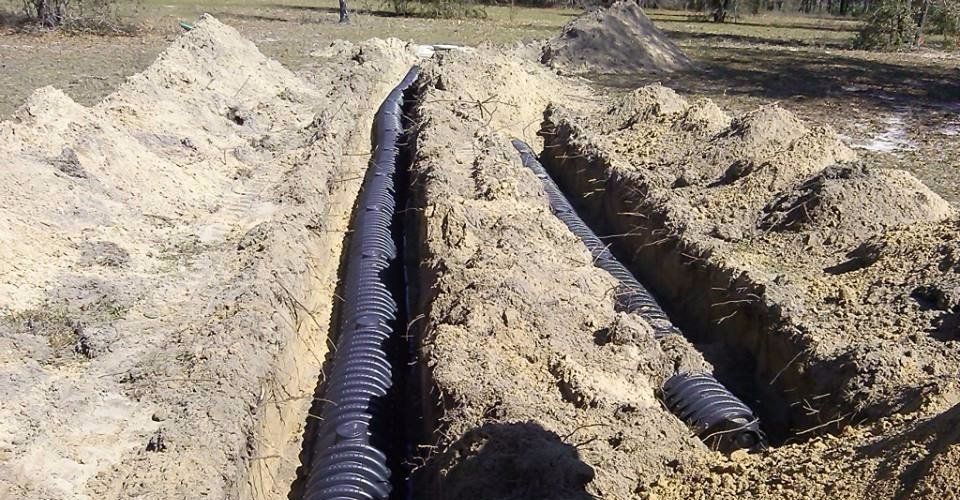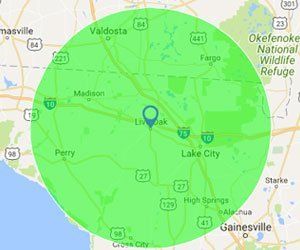
Valuable Septic System Tips
For your safety and precaution, Lundy's Septic INC provides important septic system tips. To learn more about our maintenance procedures and failure prevention,
call our experienced and friendly septic contractors.
You will get top-notch septic repairs and installation services at competitive prices. We offer warranties
on our septic installation services.
Dos and Don'ts of Septic System
- Know the location and capacity of your septic tank system
- Have a licensed contractor inspect the tank at least every 3
years - Have the tank pumped when the combined depth of the sludge and scum equals 1/3 of the tank liquid volume
- Install the system so that rainfall and surface water will flow away from the drain field
- Grow grass above the system
- Install water conservation fixtures or devices to reduce the total volume of water entering the system
- Keep plumbing fixtures such as toilets and faucets in good condition to prevent leakage and wasting of water
- Never flush paper towels, newspaper, wrapping paper, rags, or sticks into the systems
- Never allow large, irregular, intermittent, or constant volumes of clear water into the system, as with leaking toilet or faucet
- Never overuse ordinary household cleaning chemicals that will be flushed into the system
- Never pour out
or empty hobby or home industry chemicals into the system - Never allow grease or other bulky waste to enter the system
- Never flush toxic materials such as pesticides into the system
- Never plant trees or shrubbery in the drain field
- Never allow vehicles (cars, trucks, etc.) to drive on the drain field
Operation and Maintenance of Septic Systems
The septic tank and drain field are designed and installed to handle a maximum calculated daily sewage flow. Consistently exceeding the design flow will eventually overload the system and cause failure. The tank may receive new solids faster than it can treat them and the drain field may become saturated from excessive water use.
There are various products on the market that are said to start, accelerate, or improve the action in the septic tank. Since all necessary bacteria are already present in the sewage entering the system, such products are not recommended.
Maintenance of a septic tank will depend largely on the daily sewage flow and individual household wastewater characteristics. With ordinary use and care, a septic tank should not require pumping out more than once every 3-5 years. It should, however, be inspected to determine the depth of accumulated sludge and grease.
Waste from kitchen garbage disposal units puts an extra load on a septic tank system. If a disposal is used, the capacity of the tank should be increased to handle the increased solid wastes. The tank may also require more frequent pumping to remove accumulated solid waste buildup.
Failure to pump out a septic tank system when indicated will result in solids or greases overflowing into the drain field, which in turn may become clogged and stop functioning. In this event, not only will the tank have
to be pumped out, but the drain field may also have to be replaced.
Septic tanks can be cleaned by septic tank cleaning firms permitted by the county health department. This type of work should be done only by experienced professionals who will pump the entire contents of the tank into a tank truck and dispose of
the contents in an approved, sanitary manner.
Septic tanks installed after January 1, 1998, are required to have outlet filters. For information on how to service / clean the filter, call your septic tank contractor or county health department.
Plan of Action for Prevention of Septic System Failures
Septic tank systems fail when the drain field doesn't dispose of sewage as rapidly as it's being added to the system. Thus, improvements that reduce the amount of incoming water or improve the quality of wastewater passing through the system will increase the system’s longevity. Other important considerations include the following:
- A drain field can be damaged by compaction due to vehicular traffic and can be blocked by excessive shrubbery or tree root growth. The drain field should be unobstructed and seeded with grass. Grass and sunlight aid evaporation.
- Washing machines are responsible for large volumes of water entering the septic tank. The surge of wash water can create turbulence in the tank that increases the amount of solids flushed into the drain field. Space your washings throughout the week rather than doing many loads at a time, or install a separate system for washing machine water.
- Cooking oil and grease are
troublemakers . The type of bacteria found in septic tanks and drain fieldsdon't survive or function well in solidified grease. Grease and cooking fats should never be washed down the sink drain. Save grease in jars or cans for disposal in the garbage.
Call us today for a FREE
estimate on our septic system installations.
386-364-5485
386-364-5485
We are insured and licensed for your protection!


